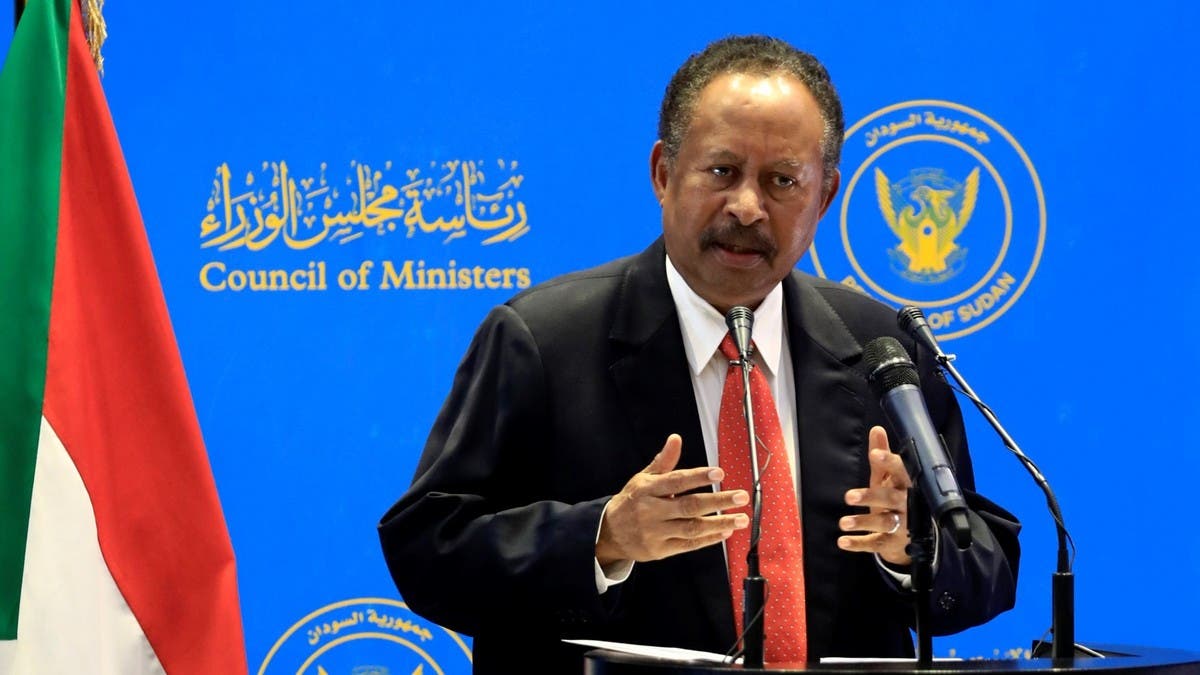Sudan’s Prime Minister Abdalla Hamdok announced his resignation Sunday amid political deadlock and widespread pro-democracy protests following a military coup that derailed the country’s fragile transition to democratic rule.
Hamdok called for a dialogue to agree on a “national charter” and to “draw a roadmap” to complete the transition. The October coup had upended Sudan's plans to move to democracy after a popular uprising forced the military’s overthrow of longtime autocrat Omar al-Bashir and his Islamist government in April 2019.
On Sunday, prior to his resignation, Sudanese security forces violently dispersed pro-democracy protesters, in the latest demonstrations to denounce the takeover and a subsequent deal that reinstated the prime minister but sidelined the pro-democracy movement. A medical group said at least two people were killed.
The Sudan Doctors Committee, which is part of the pro-democracy movement, said one of the dead was hit “violently” in his head while taking part in a protest march in Khartoum. The second was shot in his chest in Khartoum’s twin city of Omdurman, it added. The group said dozens of protesters were injured.
Activist Nazim Sirag said security forces used tear gas and sound grenades to disperse protesters, and chased them in side streets across the capital.
Protests also took place in other cities including Port Sudan and Nyala in the Darfur region.
The protests came despite tightened security and blocked bridges and roads in Khartoum and Omdurman. Internet connections were also disrupted ahead of the protests, according to advocacy group NetBlocs. Authorities have used such tactics repeatedly since the Oct. 25 coup.
Sunday's fatalities have brought the death toll among protesters since the coup to at least 56, according to the medical group. Hundreds have also been wounded.
Allegations surfaced last month of sexual violence, including rape and gang rape by security forces against female protesters, according to the United Nations.
The ruling sovereign council has vowed to investigate violence against the protesters.
On Saturday, US Secretary of State Antony Blinken urged security forces to “immediately cease the use of deadly force against protesters" and to hold those responsible for violence accountable.
He also called for Sudanese leaders to accelerate their efforts to form a “credible cabinet,” an interim parliament and judicial electoral bodies that will prepare for the country’s planned 2023 elections.
The rotating leadership of the sovereign council now chaired by Gen. Abdel-Fattah Burhan should be transferred to a civilian as was planned before the coup, Blinken said.
“We do not want to return to the past, and are prepared to respond to those who seek to block the aspirations of the Sudanese people for a civilian-led, democratic government,” he added.
The October military takeover upended a fragile planned transition to democratic rule following a popular uprising that forced the military’s overthrow of longtime autocrat Omar al-Bashir and his Islamist government in April 2019.
Hamdok, a former UN official seen as the civilian face of Sudan’s transitional government, was reinstated in November amid international pressure in a deal that calls for an independent technocratic Cabinet under military oversight led by him.
That deal, however, was rejected by the pro-democracy movement, which insists that power be handed over to a fully civilian government tasked with leading the transition.
Hamdok defended the Nov. 21 deal with the military, saying that it was meant to preserve achievements his government made in the past two years, and to “protect our nation from sliding to a new international isolation.”
For the latest headlines, follow our Google News channel online or via the app.
Read more:
Sudan security forces kill two anti-coup protesters: Medics
Sudan’s security forces kill 4 at anti-coup rally, raid Al Arabiya offices
Sudan’s Burhan says military will exit politics after 2023 elections

 World2 years ago
World2 years ago
 World2 years ago
World2 years ago
 Entertainment7 years ago
Entertainment7 years ago
 World7 years ago
World7 years ago
 Entertainment7 years ago
Entertainment7 years ago






